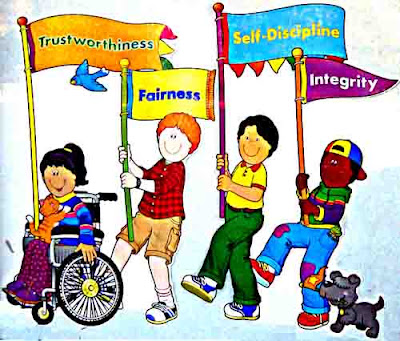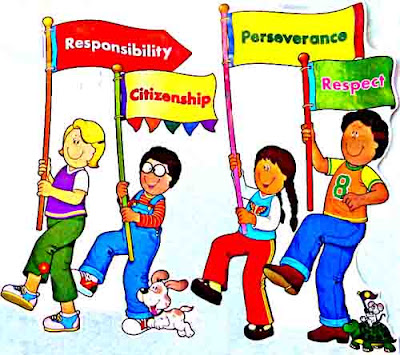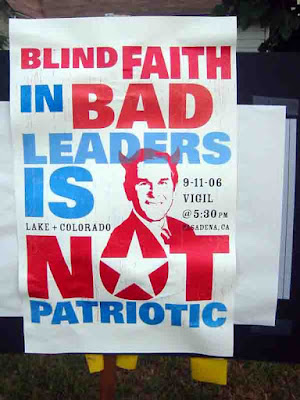 click here to hear Thinking With Other People's Words = the inevitable, interminable program-note-style words which every self-important composer adds to every piece in an effort to convince the audience that the music is really much better than it sounds are below. For this piece, however, I suggest you listen first, then read (or DON'T read) later.
click here to hear Thinking With Other People's Words = the inevitable, interminable program-note-style words which every self-important composer adds to every piece in an effort to convince the audience that the music is really much better than it sounds are below. For this piece, however, I suggest you listen first, then read (or DON'T read) later.Copyright (c) 2007 by David Ocker - 8 minutes, 29 seconds
 Initially I intended to restrict the music I post at Mixed Meters to very short pieces called 30 Second Spots. None ever came out less than 30 seconds long, a few were almost 2 minutes.
Initially I intended to restrict the music I post at Mixed Meters to very short pieces called 30 Second Spots. None ever came out less than 30 seconds long, a few were almost 2 minutes.When I started posting longer pieces I invented a second classification called 3 Minute Climax. You can figure out what it means, I can't be bothered to explain everything.
But the new piece in this post is much longer than 3 minutes. It's the longest new piece I've ever posted here. I needed a new classification and I've selected the name "10 Minute Break" - sorry if you feel short-changed by the missing 90 seconds in this piece. There may never be another 10 Minute Break for me to make up the extra time.
(If you're looking for even longer, try this Mixed Meters post where you'll find a link to a very very old 13-minute piece of mine, Voluntary Solitude for clarinet & electronics, one of my greatest compositional failures.)
 Last month I accidentally watched part of a PBS documentary about preserving native American heritage in Alaska. One woman, talking about the preservation of nearly extinct languages, talked about the cruelty of forcing young children to speak only English in government schools rather than their native tongues.
Last month I accidentally watched part of a PBS documentary about preserving native American heritage in Alaska. One woman, talking about the preservation of nearly extinct languages, talked about the cruelty of forcing young children to speak only English in government schools rather than their native tongues.She said the students were forced to "think with other people's words." I immediately recognized this as a perfect title for the music I was planning to begin that day.
 As I worked on the piece I realized that the concept of using someone else's words in thinking was far from unique and not always malevolent. In fact, it was omnipresent in our culture. Other people's words are an essential part of the transmission of knowledge and behavior from one generation to the next.
As I worked on the piece I realized that the concept of using someone else's words in thinking was far from unique and not always malevolent. In fact, it was omnipresent in our culture. Other people's words are an essential part of the transmission of knowledge and behavior from one generation to the next.We all get our words, our concepts, our abstractions from our parents, our teachers and our clergy. Most of us never question these words. Bad people can do bad thing by misusing unquestioned words.
 I picked three words which I believe have been under-questioned and over-abused in the U.S. recently and I included them in the music. To speak them, I've used the voice of someone known to all who has greatly benefited from their misuse. These three words are markers which divide Thinking With Other People's Words into sections.
I picked three words which I believe have been under-questioned and over-abused in the U.S. recently and I included them in the music. To speak them, I've used the voice of someone known to all who has greatly benefited from their misuse. These three words are markers which divide Thinking With Other People's Words into sections. As the music grew I discovered that I was using "musical words" in a manner new for me. These would usually be called musical motives, or fragments or ideas. For example, in the beginning is a (musical) word which returns near the end of each later section. Its return is heralded by the "invocation sound" (a whistle, most often associated with authority figures such as policeman, athletic coaches, talk show hosts and composition teachers.)
As the music grew I discovered that I was using "musical words" in a manner new for me. These would usually be called musical motives, or fragments or ideas. For example, in the beginning is a (musical) word which returns near the end of each later section. Its return is heralded by the "invocation sound" (a whistle, most often associated with authority figures such as policeman, athletic coaches, talk show hosts and composition teachers.)More importantly, a few of these music words were not mine. I was writing with other musicians words. There are no direct quotes that I'm aware of, but there is clearly a recognizable aura of several other composers. So a big shoutout to Morton Feldman and Edgard Varese, neither of whom I'd previously felt were strong influences on me. (And also to whoever wrote the theme to The Jetsons.)

Blogger Kyle Gann, inspired by a book about Stravinsky, wrote an article on the ill-effects of the way musical words are passed down through generations of composers, from teacher to student. Everything thing he said about the graduate study of composition tallied with my (negative) experiences until he got to the part on how Cal Arts (where I studied) was one of the few non-damaging place to study.
I would like to suggest that the graduate study of musical composition should be completely eliminated. Musicians who really want to compose will figure things out on their own. Imitation, cheap or otherwise, would be reduced. I sure hope the Cal Arts School of Music doesn't decide to offer a doctoral degree in music composition.
Explanation of 30 second spots
A previous Mixed Meterism about Varese, Zappa and Slonimsky.
More Mixed Meters Morty mentions.
Word Tags: words. . . concepts. . .religion. . . faith. . . god. . . invocation. . . whistle. . . Morton Feldman. . . Edgard Varese. . . The Jetsons. . . music school. . . graduate school. . . teachers. . . students. . . composers. . . composer. . . Kyle Gann. . . Cal Arts. . . David Ocker. . . 10 Minute Break. . . 30 Second Spots. . .Mixed Meters
No comments :
Post a Comment